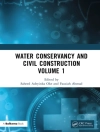The book presents the most advanced biotechnological information with respect to microbial applications in the treatment of mineral-metal bearing wastes. With growing interest in practical industrial applications of biomining microbes, of late, a lot of research has been devoted towards exploring their biotechnological potential for processing wastes derived from both primary and secondary resources for metal recovery. The chapters in the book present compiled information on several aspects of this exciting area of mineral biotechnology, that include fundamental, applied, bioprocess engineering and environment in separate chapters. These chapters provide updated information on the microbe-mineral interactions; resource specific bioleaching covering base, precious and rare earth elements leaching from primary and/or secondary resources; processing of leach solutions through biosorption, biomineralization, bio-electrochemical systems for resource recovery; treatment of mine waters, engineering and scale-up aspects of bioreactor systems for bioleaching of specific wastes and environmental challenges related to bio-mining. The book provides a unique platform for the dissemination of the state-of-the-art research on mineral biotechnology and serves as a bridge between academia and industry. Authored by well-renowned experts, it is an appropriate reference for graduate students, scientists, engineers, environmentalists working in the area of mineral biotechnology and industrial technologies.
Jadual kandungan
Microbes, Metal(loid)S and Microbe-Metal(loid) Interactions in the Context of Mining Industry.- Chalcopyrite Dissolution: Challenges.- Bioleaching of Lateritic Nickel Ores.- Microbial Leaching Strategies for Extraction of Rare Earth Elements from Primary and Secondary Resources.- Biotechnological Applications in Spent Lithium-Ion Battery Processing.- Bio-Beneficiation: Relevance to Mineral Processing.- Phosphate Minerals and Applications of Phosphate Solubilising Microorganisms for Extraction of Critical Minerals and Rare Earth Elements.- Role of Bio-Surfactants in Heavy Metal Removal and Mineral Flotation.- Recovery of Metals from Leach Liquors: Biosorption Vs Metal Sulphide Precipitation.- Anaerobic Bioreactor Technology (ABT) for the Treatment of Acid Mine Drainage (AMD).- Integration Of Bioleaching and Biorefinery Technologies for the Recovery of Base and Critical Elements from Electronic Waste.- Mineral Processing in Bioreactors: Fundamentals and Design Aspects.- Mineral-Metal Wastes (Bio)/Recycling: Compliance with Circular Economy.
Mengenai Pengarang
Sandeep Panda (Lead Editor) received B.Sc. with honors in Zoology (2006) from Utkal University, M.Sc. in Biotechnology (2008) from Ravenshaw University, and Ph.D. in Life Sciences (2015) from North Orissa University, India. Since June 2022, he has been working as an Assistant Professor at the Department of Industrial Biotechnology, Gujarat Biotechnology University, India. His main research areas include: Bio-hydrometallurgical approaches for metal extraction from primary and secondary resources; bio-desulphurization; bio and chemical approaches for mine water treatment, and application of eco-friendly approaches for sustainable mineral-metal waste recycling and management.
Srabani Mishra received B.Sc. with honors in Microbiology (2007) from Orissa University of Agriculture Technology, M.Sc. in Applied Microbiology (2009) from Vellore Institute of Technology, and Ph.D. in Biological Sciences (2018) from Academy of Scientific and Innovative Research, India. Since January 2020, she has been working as Assistant Professor at the Department of Mining Engineering, Suleyman Demirel University, Turkey. Her main research interests include bio-mineral processing; bio-hydrometallurgical applications for metal extraction from both primary and secondary mineral resources; bio-desulphurization of coal and pet-coke and nano-technological applications in environmental remediation.
Ata Akcil holds a B.Sc. in Mining Engineering (1990), M.Sc. in Mineral Processing (1994), and Ph.D. in Mineral Processing (1999) from Dokuz Eylul University, Izmir, Turkey. Since 2010, he has been working as Full Professor at the Suleyman Demirel University (SDU), Turkey. His main research areas include industrial waste management/recycling and hydrometallurgical/bio-hydrometallurgical process applications for metal recovery.
Eric D. van Hullebusch holds a B.Sc. in Chemistry (1997), M.Sc. in Aquatic Chemistry and Microbiology(1999), and Ph.D. in Aquatic Chemistry and Microbiology (2002) from Université de Limoges, France. Since September 2018, he has been working as Full Professor at the Institut de Physique du Globe de Paris/Université de Paris in Biogeochemistry of engineered ecosystems. His main research areas include bio-weathering of natural and industrial materials, bio-hydrometallurgy process applications for resource recovery from secondary waste streams, and soil bio-remediation.












